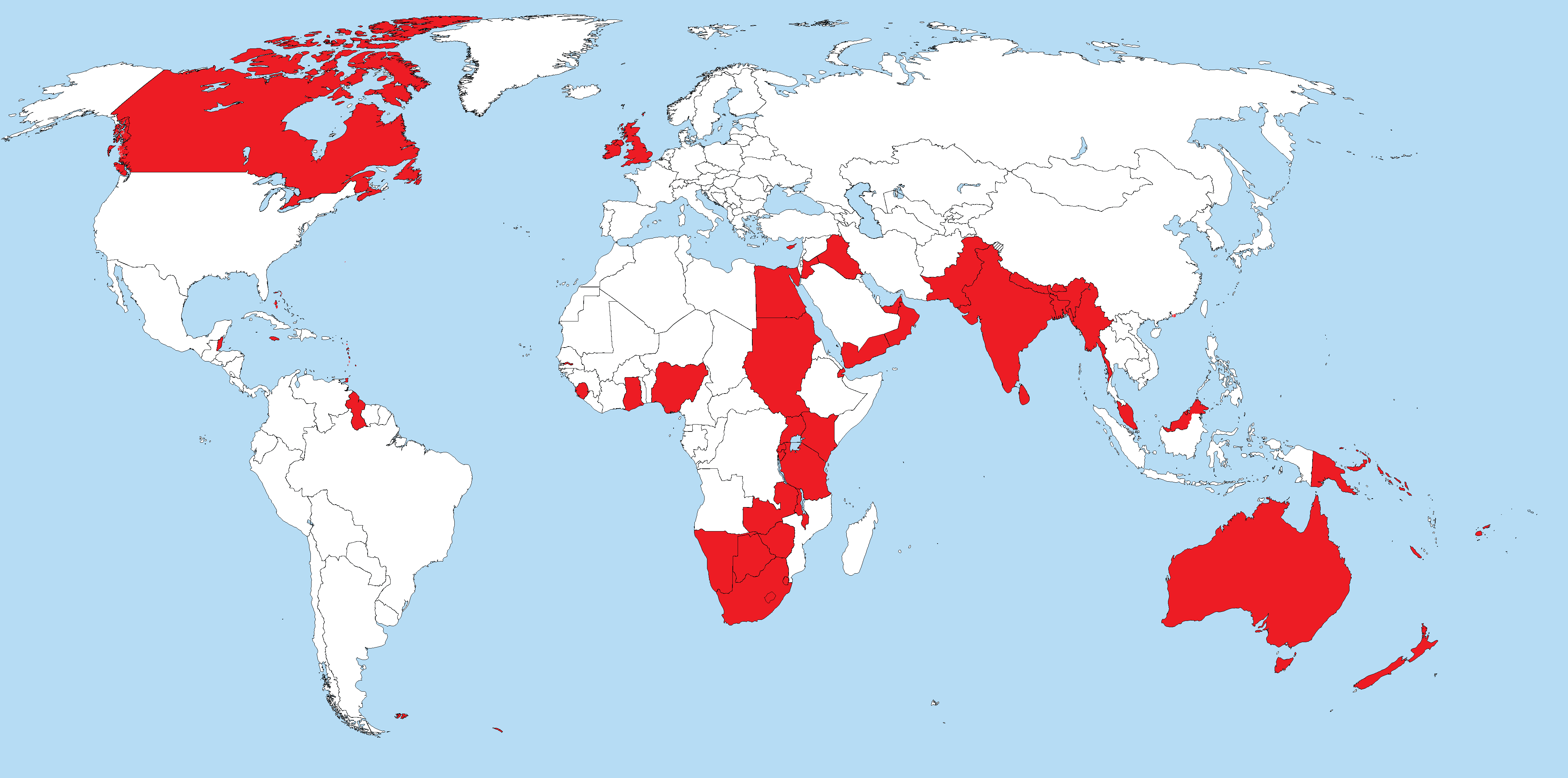Paradoxically, the British were late starters in the race for colonies. The first colonial powers in Europe had been Portugal, Spain and Holland in the 16th century. However, the English monarch's subjects soon made up for lost time.
In the 1870s, Great Britain had direct control of a fifth of the Earth's surface, including India, Canada and Australia. It was the dominant sea power, the leading colonial country, and the first industrial nation. Its economy accounted for a quarter of the world's trade .
At Queen Victoria's Diamond Jubilee celebrations in 1897, parading troops from the Queen's territories all over the world were described as follows in the Daily Mail: … White men, yellow men, brown men, black men, every colour, every continent, every race, every speech – and all in arms for the BRITISH EMPIRE AND THE BRITISH QUEEN.
The old Colonial System lasted from the late 16th century to the 1780s, when the Empire was concentrated in the American and West Indian colonies.
The second Empire covered the next hundred years, during which America was lost, the Dominion of Canada was created (1867) and the Suez canal was opened (1869). But the most dramatic expansion came in the years 1870-1914, known as the New Imperialism, when the Empire more than doubled in area with the consolidation of Australia, New Zealand, Canada and South Africa.
Firstly for a bit of history. The British Empire comprised of dominions, colonies, protectorates, mandates and territories which were ruled or administered by the United Kingdom. Its origins date back to between the late 16th and early 18th centuries in which time England began establishing overseas possessions and trading posts.
By 1922 the British Empire governed over 458 million people, one fifth of the world’s population at the time. The empire covered more than 33,700,000 km, almost a quarter of the Earth’s total land area. As a result, the empires political, legal, linguistic and cultural legacy is widespread.
During this period it was said that 'the sun never set on the British Empire', because whatever the sun's position, it was always over a British colony. Explanations for this rapid expansion vary from the economic – opening up the world to 'the imperialism of free trade' – to the sociological – the spreading of British civilization, culture and religion.
Britannia was able to rule the waves because of Britain's island position. Unlike its Continental neighbours, it did not need a large standing army to defend its borders and so could concentrate its resources on naval power. The great British naval bases at Dover, Gibraltar, Alexandria, the Cape of Good Hope and Singapore were called "the 5 strategic keys that lock up the world".
Following the First World War, the British Empire evolved into the Commonwealth, a grouping of independent, self-governing nations. Britain's decline may have something to do with the spread of industrialisation, the emergence of new powers and a general reaction against imperialism. More than a century after Queen Victoria's jubilee, Britain has lost nearly all of its empire. Today the main legacy of British expansion in the world is the English language. The very last British colony was Hong Kong, which was returned to China in 1997.
Britain also continues a relationship of trade and/or aid with the 50 independent members of the Commonwealth, along with its European commitments.
The most visible reminder of Empire in Britain these days is the populations from former colonies who have settled there. Having built churches in Victorian Gothic style all over India, Britons can now contemplate the dome of the mosque in Regent's Park in London. The wheel has come full circle.


